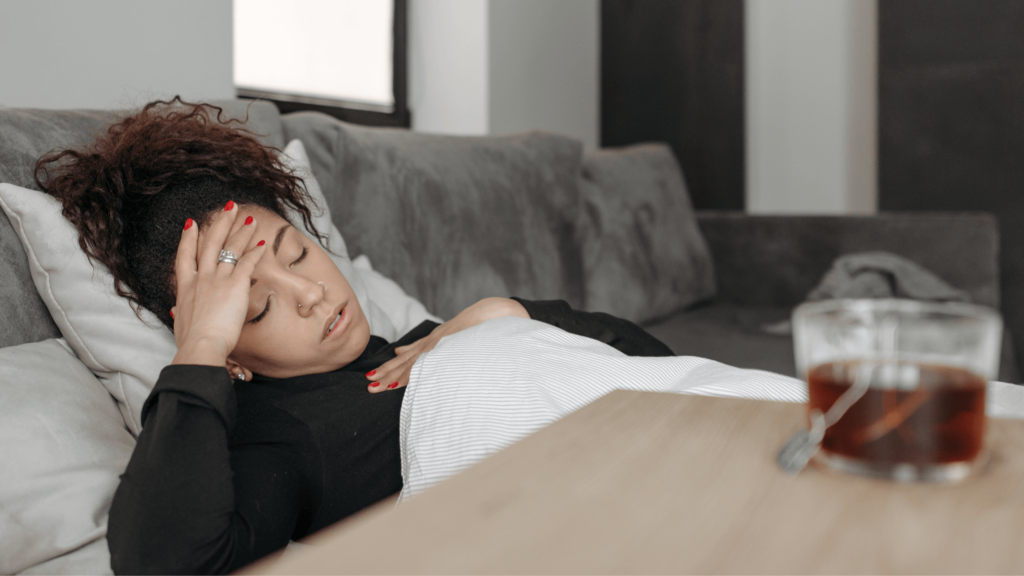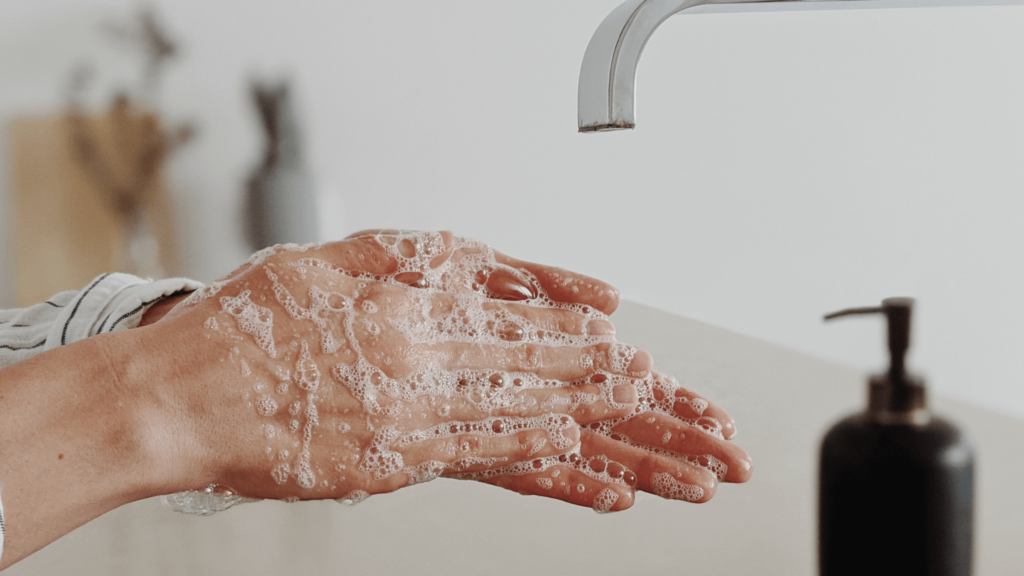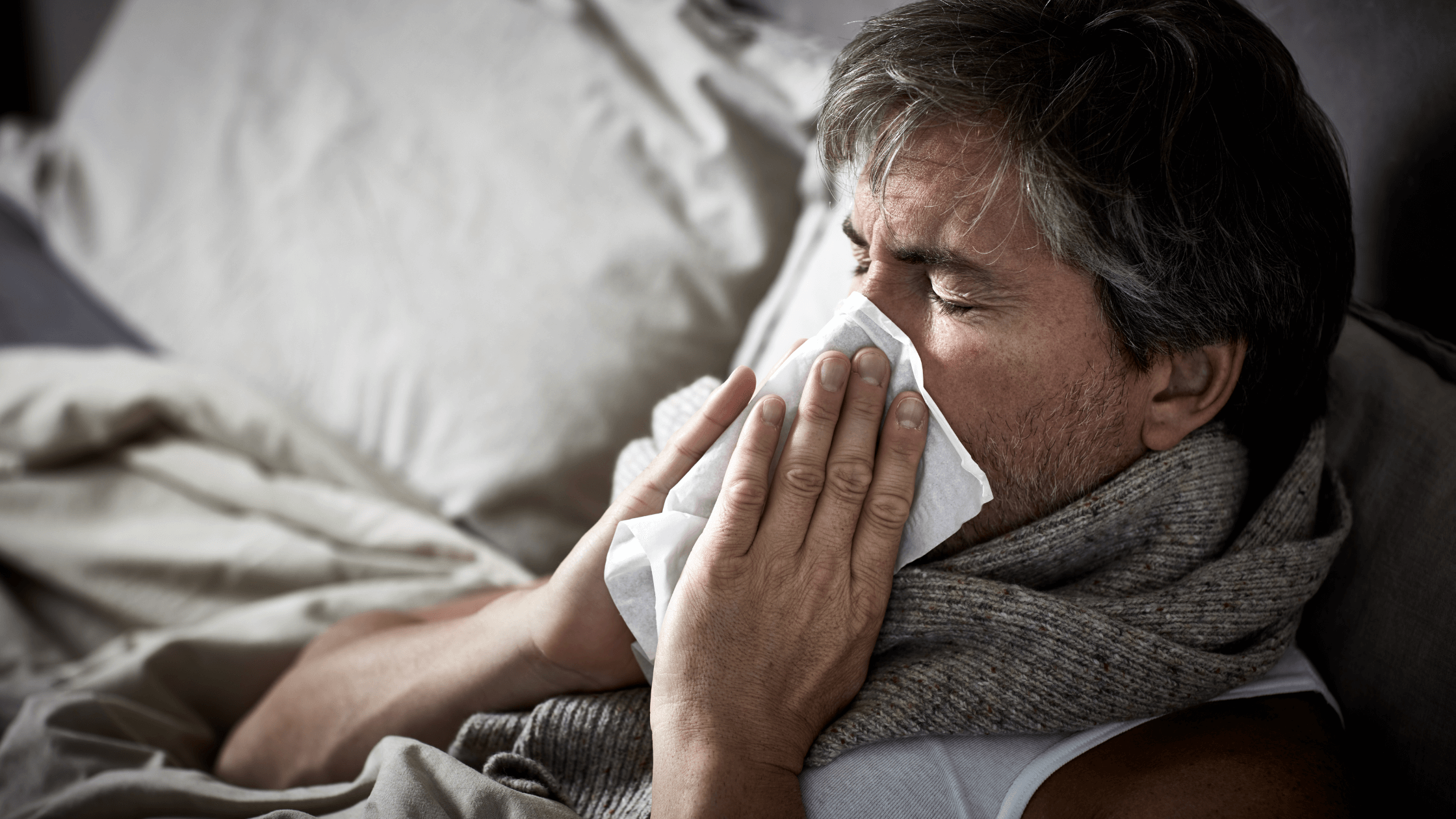Dealing with a cold can be frustrating, especially when nighttime rolls around and every symptom intensifies. Why is it harder to breathe, sleep, or stay comfortable after the sun sets? Hormonal changes, such as reduced cortisol and increased melatonin, play a major role in these shifts. Symptoms like congestion, sore throat, and cough worsen, making rest elusive. Here, we delve into the science behind these changes and offer practical ways to manage cold symptoms, ensuring you wake up feeling clear-headed, refreshed, and ready to tackle another day on the job.
It’s not all in your head
The worsening of cold symptoms at night isn’t just your imagination—it’s a physiological response rooted in your body’s internal clock. As evening approaches, your body naturally produces more melatonin to prepare for sleep. This hormone indirectly triggers your immune system to become more active, ramping up its fight against infections. While this immune response is vital for recovery, it also causes inflammation to intensify, leading to heightened discomfort.
Another factor is the significant drop in cortisol levels. Cortisol is a hormone that acts as a natural anti-inflammatory during the day. When its levels fall at night, your body loses some ability to control inflammation, worsening symptoms like congestion and a sore throat. Additionally, lying down increases blood flow to your head, exacerbating nasal congestion by causing tissues to swell. Combined with the quiet of nighttime, these factors make symptoms like coughing and a runny nose more noticeable.
Recognizing that this process is a natural part of healing can make it easier to manage the discomfort. Simple strategies, like adjusting your sleep position or using targeted remedies, can help you rest more comfortably despite the increased intensity of cold symptoms.
Why cold symptoms get worse at night (and what to do about it)

Congestion
Congestion feels particularly bad at night due to a mix of physical and physiological factors. Gravity plays a key role: When you lie flat, blood flow to your nasal passages increases, causing tissues to swell. This swelling blocks your nasal passages, making it harder to breathe. Mucus, which drains more easily when you’re upright, pools in your sinuses when lying down, further worsening congestion. Nighttime dryness—often from central heating—can thicken mucus, increasing the blocked feeling.
What you can do:
Elevating your head with extra pillows can help reduce nasal swelling by using gravity to your advantage. Before bed, saline sprays or rinses can clear mucus and soothe swollen nasal tissues. Consider running a humidifier to keep the air moist, which prevents mucus from thickening. Drinking warm fluids, such as herbal tea, can also help hydrate your nasal passages while promoting drainage. Decongestants or steam inhalation can provide temporary relief for severe congestion, making it easier to fall asleep.
Sore throat
A sore throat often worsens at night due to inflammation and dryness. During the day, swallowing frequently keeps the throat moist and clears away mucus. At night, reduced swallowing and increased mouth breathing, often caused by congestion, dry out the throat. This dryness irritates the already inflamed tissues, making the pain more pronounced. Cold viruses also trigger immune cells to release compounds that heighten inflammation, compounding the discomfort.
What you can do:
Sip on warm, soothing drinks like honey and lemon tea or chamomile to hydrate and calm throat irritation. Keep a glass of water by your bed to stay hydrated overnight, and use a humidifier to maintain moisture in the air. Over-the-counter throat sprays or medicated lozenges can provide targeted relief for soreness. Gargling with warm salt water before bed is another effective way to reduce inflammation and kill bacteria lingering in the throat.
Runny nose
A runny nose might seem harmless during the day, but it can feel relentless at night. Increased immune activity during the evening boosts mucus production as your body works to flush out the virus. This excessive mucus flow can become more noticeable when lying down, especially if it drips down the back of your throat, triggering coughing or irritation. Dry indoor air worsens the situation, irritating nasal passages and making mucus thicker.
What you can do:
Blow your nose gently and thoroughly before bed to minimize mucus buildup. Use a saline spray to keep nasal passages moist, which can help regulate mucus flow. Running a humidifier can prevent your nasal passages from drying out while drinking plenty of fluids throughout the day keeps mucus thin. For more immediate relief, a mentholated rub applied to your chest or under your nose can open airways and reduce the discomfort of a runny nose.
Cough
Coughing intensifies at night because of the postnasal drip and the lying-down position. Mucus collects in the back of the throat, triggering the cough reflex. Dry air in the bedroom can aggravate this, irritating the throat and airways. Your body’s increased immune response at night also makes the throat more sensitive to irritation, prolonging coughing fits and disrupting sleep.
What you can do:
Propping yourself up with pillows can help reduce postnasal drip and ease throat irritation. Warm liquids like herbal tea or broth can coat the throat and reduce the coughing reflex. A humidifier adds moisture to the air, preventing dryness that can trigger coughs. For severe cases, consider using an over-the-counter cough suppressant before bedtime to provide temporary relief and ensure a more restful night.
Headache
Sinus-related headaches often worsen at night due to the same factors that increase congestion. Lying down causes sinus pressure to build up, creating a throbbing pain around the forehead, eyes, or cheeks. Dehydration, which often occurs during illnesses, can also contribute to nighttime headaches. Inflammation from your body’s immune response further intensifies the discomfort, particularly when blood vessels in the sinuses become more sensitive.
What you can do:
Drink plenty of water throughout the day to stay hydrated, which can reduce headache severity. Using a warm compress on your forehead or sinuses before bed can ease pressure and promote drainage. Running a humidifier can also keep airways open, reducing sinus-related headaches. If the pain persists, consider taking a mild over-the-counter pain reliever, such as ibuprofen, to reduce inflammation and relieve headaches.
Fever/chills
Fever and chills often spike at night as part of the body’s circadian rhythm. Immune activity naturally increases in the evening, raising the body’s temperature as it fights off infections. This rise can make fever symptoms, such as chills and sweating, more noticeable and uncomfortable. Nighttime overheating from too many blankets or thick pajamas can also intensify these symptoms.
What you can do:
Dress in lightweight, breathable fabrics and use a light blanket to regulate your temperature. If you’re experiencing chills, keeping your bedroom cool can help you feel more comfortable. A lukewarm bath or cool compress can naturally bring down your fever. If your temperature is high, fever-reducing medications like acetaminophen or ibuprofen can provide relief and help you sleep better.
Tips for staying healthy in the thick of cold season

Hydrate
Staying hydrated helps thin mucus, reduce inflammation, and maintain overall immune health, especially during colder months. Proper hydration ensures that your nasal passages stay moist, making clearing congestion easier and alleviating cold symptoms like a sore throat or dry cough. Carrying a reusable water bottle throughout the day is a simple habit that can make a big difference, especially for those working in physically demanding fields like construction or engineering.
Warm liquids like herbal teas, broths, or even a comforting mug of hot water with lemon can provide extra relief by soothing irritated airways and supporting hydration. Additionally, staying hydrated supports overall energy levels and cognitive function, helping you stay alert and productive during busy workdays. Make it a priority to drink consistently, even when you don’t feel thirsty, as cooler weather can reduce your thirst signals.
Moderation with food (especially alcohol and sugar)
Excess sugar and alcohol can weaken your immune system, leaving you more vulnerable to colds and other illnesses. High sugar intake has been shown to reduce the effectiveness of white blood cells, which play a key role in fighting off infections, for several hours after consumption. Alcohol can also dehydrate the body, disrupt sleep patterns, and interfere with nutrient absorption, all of which are essential for maintaining a strong immune response.
Instead, focus on balanced meals that include plenty of fruits, vegetables, lean proteins, and whole grains to give your body the necessary vitamins and minerals. Enjoy treats and alcoholic beverages in moderation to avoid compromising your defenses while still savoring the season. Small changes, like substituting sugary desserts with naturally sweet options like fresh fruit or limiting drinks to one or two servings, can make a noticeable difference in staying healthier throughout the winter months.
Prioritize sleep
Adequate rest is essential for both recovery and illness prevention, as sleep is when the body repairs itself and strengthens the immune system. Aim for 7-9 hours of quality sleep each night to give your body the time to fight off viruses and rebuild energy. During sleep, the immune system releases proteins called cytokines, which are critical for battling infections and reducing inflammation. Skimping on sleep can decrease the production of these proteins, leaving you more susceptible to illness and prolonging recovery time if you’re already unwell.
To improve sleep quality, establish a consistent bedtime routine, avoid caffeine or heavy meals late in the evening, and create a calm, dark sleeping environment. Prioritizing rest helps fend off sickness and ensures you’re more alert and energized to tackle your daily responsibilities effectively.
Wash your hands frequently
Viruses spread easily through contact with contaminated surfaces, especially in shared spaces or high-traffic areas like workplaces and public transportation. Washing your hands regularly with soap and water for at least 20 seconds helps remove germs before they can enter your system. Pay special attention to washing after coughing, sneezing, or touching commonly shared items such as doorknobs, tools, or electronic devices.
Keeping hands away from the face, particularly the mouth, nose, and eyes, further reduces the risk of transferring viruses. If soap and water aren’t available, using a hand sanitizer with at least 60% alcohol can be an effective alternative. Consistent hand hygiene is one of the simplest yet most powerful ways to protect yourself and others from infection.
Stay active
Light to moderate exercise boosts circulation and strengthens immune function by encouraging the movement of immune cells throughout the body. Activities such as walking, yoga, or gentle stretching help maintain physical fitness while reducing stress, which can further benefit the immune system. Exercise also enhances the body’s ability to regulate inflammation, making it less susceptible to illnesses.
During the cold season, avoiding overexertion is especially important, as intense workouts can temporarily weaken your immune defenses. A brisk 30-minute walk or a calming yoga session can be an excellent way to stay active without pushing your body too hard. Keeping up with regular, moderate movement ensures your body remains resilient and ready to fight off infections.
Bottom line
Cold symptoms worsen at night because of your body’s natural hormonal changes and immune responses. While these processes are part of your recovery, they can make symptoms like congestion, sore throat, and cough harder to tolerate. Understanding the causes and using simple strategies—like propping yourself up, staying hydrated, and using humidifiers—can make nighttime cold symptoms more manageable. Staying healthy during cold season also means maintaining habits like regular hydration, balanced eating, and prioritizing sleep.
For more tips on staying well this winter, subscribe to Under the Hard Hat.


